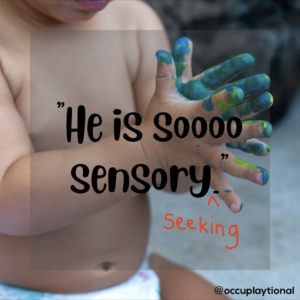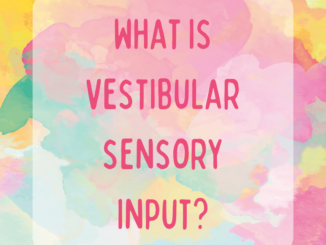PSA: Everyone is “sensory”.
(A second, more pedantic, more pet-peevy PSA: “sensory” is an adjective, not a noun!)
Everyone in the world has a sensory system. Everyone interacts with the world around them through that sensory system.
When people say a kid is “sensory”, they usually mean it as shorthand for “sensory-seeking”. But it’s really important to be clear in our language! Because kids can also be sensory-sensitive. Or sensory-avoidant. Or sensory-missing.
Why is it important that we communicate more precisely about this? A few reasons: it helps us avoid pathologizing the children who fall into the “seeking” box, but are still within the range of “typical” for the childhood experience. Being sensory-seeking is not inherently problematic.
It also helps us avoid missing the children who ARE experiencing sensory disorganization or processing difficulties to a degree that it’s affecting their lives, but who aren’t sensory-seeking. It is entirely possible for people to have sensory sensitivity, sensory avoidance, or sensory missing to a degree that IS problematic!
And when we only talk about “sensory” to mean sensory-seeking, or “sensory kids” as shorthand for sensory-seeking kids, we risk erasing those other kids’ experience from what we expect to see when we’re looking for red flags.





